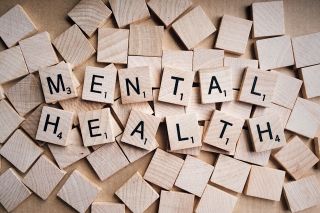Therapy
Flourishing With Recovery-Oriented Cognitive Therapy
This revolutionary practice teaches us the power of connection and meaning.
Posted August 9, 2023 Reviewed by Ray Parker
Key points
- Recovery-Oriented Cognitive Therapy was developed for individuals with serious mental health conditions.
- The underlying principles have since been applied to individuals experiencing a range of challenges.
- This approach promotes resilience and empowerment, with a focus on connection.
- Strategies from this approach can help individuals flourish, even if they do not have a mental health concern.

When my father, Aaron T. Beck, developed recovery-oriented cognitive therapy (CT-R) with his colleagues during the last fifteen years of his life, he said he was more excited about it than anything else he had done in his career.
Considering that he authored or co-authored 25 books, published over 600 scientific articles, and received dozens of prestigious medical awards for his work developing cognitive behavior therapy (CBT), many people were surprised to hear how important CT-R was to him. CT-R was originally developed to promote empowerment and resiliency in individuals diagnosed with a serious mental health condition, like schizophrenia or bipolar disorder.
But the underlying principles apply broadly to individuals experiencing a range of challenges: emotional, behavioral, social, and physical. And CT-R can help people flourish—even if they aren’t currently struggling.
The first step in CT-R is accessing an individual's “adaptive mode.” The adaptive mode is when individuals are at their best. Think about a time when you felt at your best. (For me, it’s when I’m with my grandchildren.) Where were you? What were you doing? Whom were you with? Maybe you feel at your best when you’re going for a hike, listening to your favorite album, or watching baseball with a friend. Once you’ve identified your “at best moments,” try to incorporate some of those activities or connections into your life every day, even for just ten minutes.
Connection with others is an important element of CT-R. My father and his research team noted that many individuals who have been diagnosed with serious mental health conditions live very lonely lives. Those who live in hospitals or structured residences often spend hours alone in their rooms or watching TV.
Even those who live independently in the community have often lost touch with friends and loved ones and rarely have visitors. Many have given up hobbies, volunteer work, attendance at religious services, or other activities that offer opportunities for connections with others. Reconnecting individuals with their loved ones or providing them with opportunities to make new connections is an important step in CT-R treatment.
Sadly, the COVID-19 pandemic led to feelings of isolation and loneliness on a global scale as individuals practiced social distancing and were forced to give up important social activities. In my own practice, I’ve found that many people still have not completely re-engaged in social activities that were important to them prior to the pandemic.
Sometimes it seems like we’ve become accustomed to a world with fewer social connections. But you can take steps to strengthen connections and even expand your social network. Check on a family member who spends a lot of time alone, meet a friend for a walk, or sign up for an adult education class on a topic that interests you.
Even activities where you are simply around other people, even if you don’t know them, can be uplifting, such as spending time in a public park or drinking coffee in a coffee shop instead of at home alone.
Another important aspect of CT-R is the discovery and development of powerful aspirations. Aspirations are the hopes and dreams that individuals have for their lives. Individuals, including those who may have been institutionalized for years or even decades, are invited to vividly imagine themselves living in their desired setting, having a partner or a family, going to college or vocational school, or engaging in meaningful work.
But just as important as the aspiration is the meaning behind the aspiration. As individuals imagine themselves living their aspirations, they respond to questions like, “What would be good about finishing school?” or “What would be the best thing about being a nurse?” Underlying the aspirations are meanings: “If I finished school, I would be respected,” or “If I were a nurse, I could help people.”
While some individuals may not be able to achieve their aspirations, even people living in psychiatric facilities can, with the right treatment, achieve the meanings of their aspirations, which often have to do with increasing connections, being productive, gaining respect, and helping others.
When you think about your aspirations, think big. Maybe your life is already fairly full, or you’ve had some success, or have many valued relationships. Is there a dream you’ve always had that’s been unfulfilled, like changing careers, starting a family, or traveling? Ask yourself what it would mean to achieve your aspiration. Identifying the meaning behind the aspiration provides information about how you can take positive action.
Positive action brings the underlying meaning of an individual’s aspirations into their everyday life. Let’s say you’ve identified traveling the world as your aspiration. Vividly imagine yourself walking down a street in a new place, checking into a hotel, or chatting with locals at a restaurant.
Maybe you feel excited, energized, and happy. Of course, most of us don’t have the time or resources to just take off and travel the world. You’ll want to figure out how you can get that same excited, energized feeling today, where you are, and with the resources available to you.
If the best part about traveling the world for you is learning about new cultures, can you visit a museum, take a class, or try a new type of food? If the best part is meeting new people, can you seek out new and different opportunities for socialization? If the best part is escaping from your current obligations or deadlines, can you take some time to go for a walk or meditate without your phone?
It can be very empowering for individuals who have traditionally been isolated, marginalized, or confined to an institution to not only imagine their aspirations but to discover that they can find small ways to get those positive feelings in their everyday life. As they strengthen their connections with others, and take positive action in line with their aspirations, they draw conclusions about themselves like, “I am capable of getting what I want in the world,” or “I can make a difference.”
Life is full of stressors, rejections, and challenges. Consciously building strong social connections, identifying aspirations and their underlying personal meanings, and taking positive action every day can help us be more resilient.
These strategies from CT-R have helped thousands of individuals move from a life of languishing to a life of flourishing. I hope they’ll help you, too.




